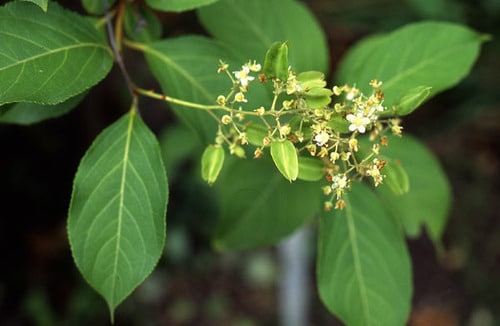Critical mass of researchers with interests in pancreatic cancer with complementary skillsets in cancer biology, medicinal chemistry, synthetic chemistry, and natural product chemistry within our lab, to find plant-based anti-cancer drugs.
By Dr Chris Scarlett

There are no two ways about it. Pancreatic cancer is a killer. It is a devastating disease that doesn’t have an early screening tool, it presents late, it is very aggressive and current therapies don’t really work. Although many attempts have been made to identify and investigate novel therapeutic agents for the treatment of pancreatic cancer, the outcomes are very limited. This is where we come in.
With the assistance of a Ramaciotti Foundation Establishment Grant and University of Newcastle seed funding, I established and lead the Pancreatic Cancer Research Group. This positioned a critical mass of researchers with interests in pancreatic cancer with complementary skillsets in cancer biology, medicinal chemistry, synthetic chemistry, and natural product chemistry within our lab. We have aligned with other key research teams locally and internationally to ensure that our end goals are met. We have a unique facility in Australia identifying novel anti-pancreatic cancer therapeutic agents, derived from natural products (as critically >50% of all anti-cancer drugs are derived from natural products).
Importantly, plant-derived anti-cancer drugs have been developed and are in use clinically. For example the vinca alkaloid group, originally isolated from the Madagascar periwinkle, are tubulin binders that inhibit microtubule assembly thereby inhibiting mitosis. These include vinblastine (Velbe®) and vincristine (Oncovin®) as well as the synthetically modified vinorelbine (Navelbine®) and vindesine (Eldisine®). These agents have demonstrated clinical efficacy against non-small cell lung cancer, breast cancer, leukaemia, multiple myeloma, head and neck cancer and testicular cancer to name a few.
Recently, triptolide extracted from the Tripterygium wilfordii vine, has shown to be a potent inhibitor of pancreatic tumour growth and spread, and improved survival in mouse models of pancreatic cancer. This compound has been synthetically modified to make a second generation water soluble agent called Minnelide, which was also shown to inhibit several different clinically relevant models of pancreatic cancer. Our search for novel therapies involves the detailed investigations of plants both locally and internationally, as well as from the land and sea.
As well as Australian native plants, my team has unparalleled access to untapped natural product resources, particularly in Vietnam, such as the National Institute of Medicinal Material Hanoi, the Hanoi University of Agriculture, the Hanoi University of Science and Technology as well as Nha Trang University to name a few. This has lead to numerous compounds being investigated that are unique to Vietnam, and that have a long history in Vietnam as medicinal plants.
We are also searching for novel therapeutic agents below the sea.
The marine environment possesses tremendous biodiversity. Over the past decade, thousands of new compounds from various marine sources have been described; with some having already entered clinical trials. This activity has been largely due to improvements in the technologies involved in deep-sea sample collection and large-scale drug production through aquaculture and drug synthesis.
These developments suggest that the oceans are an important source of novel chemical classes not found in the terrestrial environment.While we have an interest in scouring the sea for biologically active compounds from seaweeds and sea grasses, we are also investigating sea sponges (marine invertebrates) collected from Australian temperate seas.This is in collaboration with the Marine Science Program here at the University of Newcastle as well as the Australian Maritime College (AMC), the University of Tasmania.
Why sea sponges I hear you ask? Well, the current first line chemotherapy for pancreatic cancer patients, gemcitabine, was derived from fluorinating cytarabine, which was extracted from the Caribbean sea sponge (Cryptotheca crypta). This has involved me spending days at sea aboard the MV Bluefin, the AMC’s 35m flagship training vessel, collecting sea sponges harvested in Bass Straight at all times of the day and night in all kinds of conditions. Something I never thought I would do as a cancer researcher!
Overall, our team is working hard to find potential new therapeutic agents from a variety of sources, from both here and around the world. Who knows where we may end up next!
*** Dr Chris Scarlett is a Senior Lecturer in the School of Environmental and Life Sciences, and Head of Pancreatic Cancer Research at The University of Newcastle
HMRI would like to acknowledge the Traditional Custodians of the land on which we work and live, the Awabakal and Worimi peoples, and pay our respects to Elders past and present. We recognise and respect their cultural heritage and beliefs and their continued connection to their land.

Hunter Medical Research Institute
We’re taking healthy further.
Locked Bag 1000
New Lambton
NSW, Australia, 2305



This site is protected by reCAPTCHA and the Google Privacy Policy and Terms of Service apply.
Copyright © 2024 Hunter Medical Research Institute | ABN: 27 081 436 919
Site by Marlin Communications
